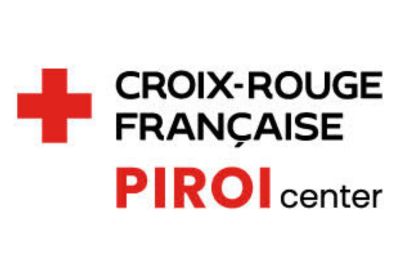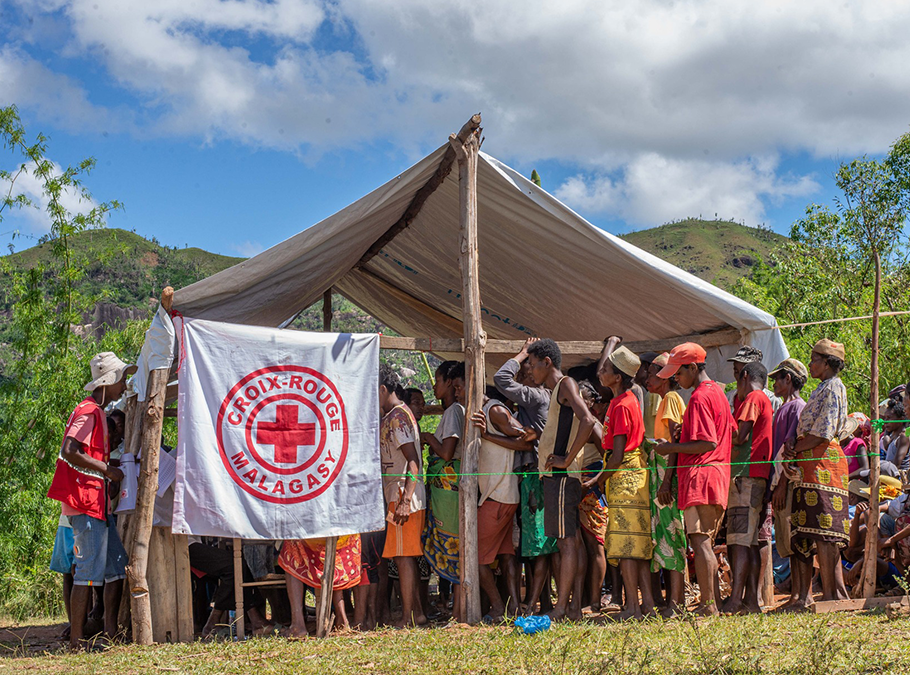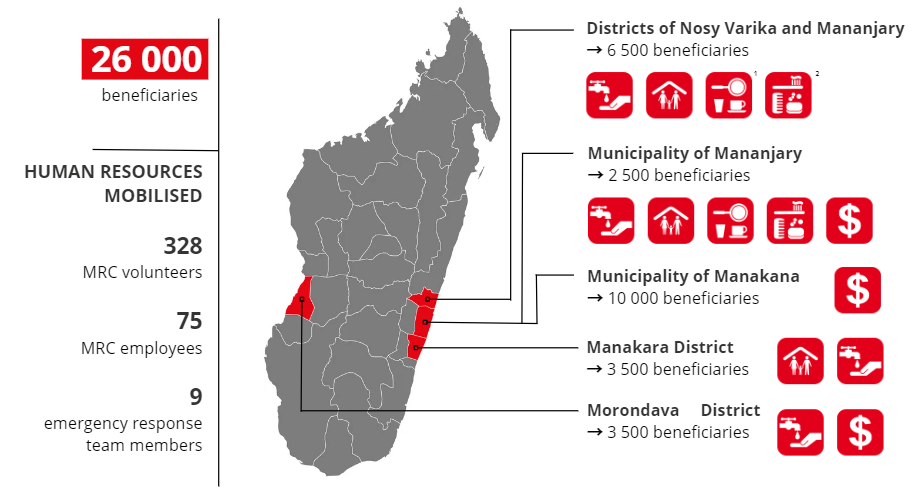After travelling across the Indian Ocean for more than 35 days, FREDDY marked the 2022-2023 cyclone season with its exceptional longevity and major impact on the people of Madagascar, Mozambique, and Malawi. Since developing off southern Indonesia on 6 February 2023, FREDDY twice made landfall in Madagascar and Mozambique before finally ending its journey in Malawi on 15 March.
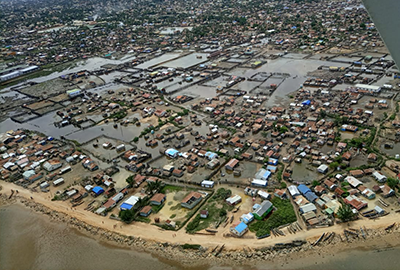
After passing north of Rodrigues, Mauritius and Reunion, Intense Tropical Cyclone FREDDY made its first landfall on the east coast of Madagascar about 30 km north of Mananjary. It continued its trajectory across the country, from east to west, before exiting into the Mozambique Channel and leaving behind widespread damage. Between 5 and 7 March, FREDDY headed down the south-west coast of Madagascar as a strong tropical storm. On 7 March, it made a U-turn, picking up strength as it crossed the Channel, varying between a status of tropical cyclone and intense tropical cyclone. Cyclone FREDDY caused 17 deaths and affected 189,052 people in Madagascar.
Malagasy Red Cross response strategy
Once the first warnings were issued by weather services, Malagasy Red Cross (MRC) mobilised its network of volunteers in order to help vulnerable communities. Working in tandem with the authorities, MRC teams were deployed to raise awareness among inhabitants of high-risk areas, to pre-position emergency supplies, and to help manage accommodation centres. The assessments carried out in the field following Cyclone Freddy’s dual impact made it possible to focus emergency response on three key priorities:
Distribution of humanitarian supplies by Malagasy Red Cross with the support of Red Cross/Red Crescent Movement stakeholders
East coast communities (impacted by Cyclone FREDDY’s first landfall), have already benefited from material and/or financial aid distributed by MRC volunteers. As for Morondava on the west coast (where FREDDY made landfall for a second time), distributions will be carried out over the coming weeks, along with hygiene awareness campaigns and water well disinfection.
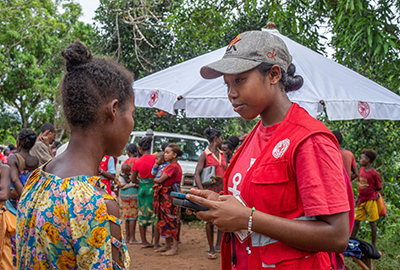
Support from Red Cross Movement stakeholders
The IFRC and Red Cross partners (Germany, Luxembourg and France, the latter through PIROI and its in-country delegation) took action to support Madagascar Red Cross in this operation. In order to provide the financial resources vital for implementing response in the field, IFRC set up an emergency fund before the cyclone’s impact, which it increased on the basis of needs assessments.
Human resources support was also provided to assist Malagasy Red Cross’s teams of volunteers and staff. In total, 9 international emergency response team members were deployed in the field, including 5 from the IFRC and 4 from the French Red Cross–PIROI.
The operational contribution of Red Cross/Red Crescent Movement stakeholders was made at various levels, in a complementary and coordinated way. Luxembourg Red Cross provided support to rehabilitate schools and a health centre, disinfect wells, and organise distributions in Nosy Varika and Mananjary. Once the distributions had taken place, Malagasy National Society scheduled the replenishment of the capital’s warehouse with 650 housing reconstruction kits.
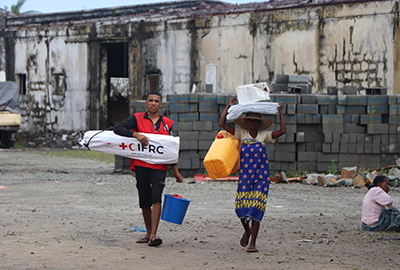
The French Red Cross (FRC) also participated in this operation through its delegation in Antananarivo, and PIROI, based in Reunion Island. As well as providing remote support and deploying team members in the field, FRC-PIROI released humanitarian supplies from the national warehouse located in the capital. These supplies included:
- housing reconstruction kits for 12,500 beneficiaries
- kitchen utensil kits for 9,000 beneficiaries
- hygiene and sanitation kits for 3,500 beneficiaries
Some of the supplies were deployed before the cyclone in areas forecast to be impacted, and then again once needs assessments had been conducted in the field. In addition, FRC–PIROI also assisted the Malagasy Red Cross in Morondava with early warnings and actions, and well disinfection.
The French Red Cross’s contribution to this operation benefits from the participation of the Crisis and Support Centre of the French Ministry for Europe and Foreign Affairs; the French Development Agency (AFD); Reunion’s Regional Council, Departmental Council, West Coast Inter-municipal Grouping (TCO), and municipality of La Possession; the European Union as part of the Programmatic Partnership and the Indian Ocean Commission’s Resilience Building and Disaster Response Management regional programme.
To stay informed of PIROI’s regional disaster risk management programme, complete the form below.

